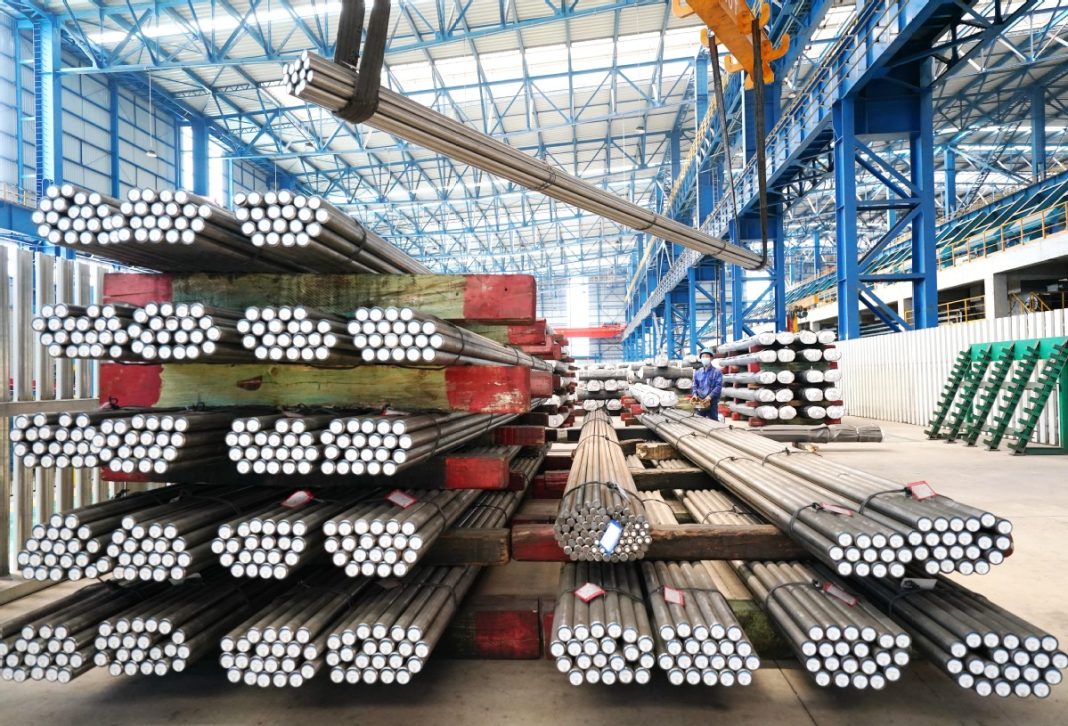BEIJING: Further efforts are expected to actively upgrade technologies in steel smelting, optimizing production processes and promoting recycling for the low-carbon transformation of the energy-intensive steel industry to foster high-quality development, experts said.
Such moves will address challenges posed by the European Union’s Carbon Border Adjustment Mechanism and pressure from downstream industries like automobiles that are urgently demanding eco-friendly steel materials, they said.
“Additionally, efforts should be made to promote product and equipment iteration and upgrading, enhance the energy efficiency of steel production processes, and develop carbon capture, utilization and storage technologies to support carbon neutrality in the steel industry,” said Mao Xinping, an academician at the Chinese Academy of Engineering and a professor at the University of Science and Technology Beijing.
The CBAM puts a price on the carbon emitted during the production of carbon intensive goods entering the EU. It started trial operation in October last year, and will be implemented from 2026 onward.
The China Iron and Steel Association has estimated that implementation of the CBAM would increase the export cost of steel products by 4-6 percent. Including certificate fees, this will result in an additional expenditure of $200-$400 million for steel enterprises annually.
“In the context of global carbon reduction, China’s steel industry faces enormous challenges and important opportunities. Achieving carbon neutrality in China’s steel industry requires systematic basic theories, a series of major technological innovations, and massive scientific and technological resources and financial investment,” Mao said at a recent forum held by the China Metallurgical Industry Planning and Research Institute.
According to the World Steel Association, China, which is the world’s largest steel producer, currently accounts for over half of global steel production.
CISA data showed that in 2023, China’s crude steel production exceeded 1 billion metric tons, flat compared to the previous year. Steel production was 1.36 billion tons, a year-on-year increase of 5.2 percent. –The Daily Mail-China Daily news exchange item






